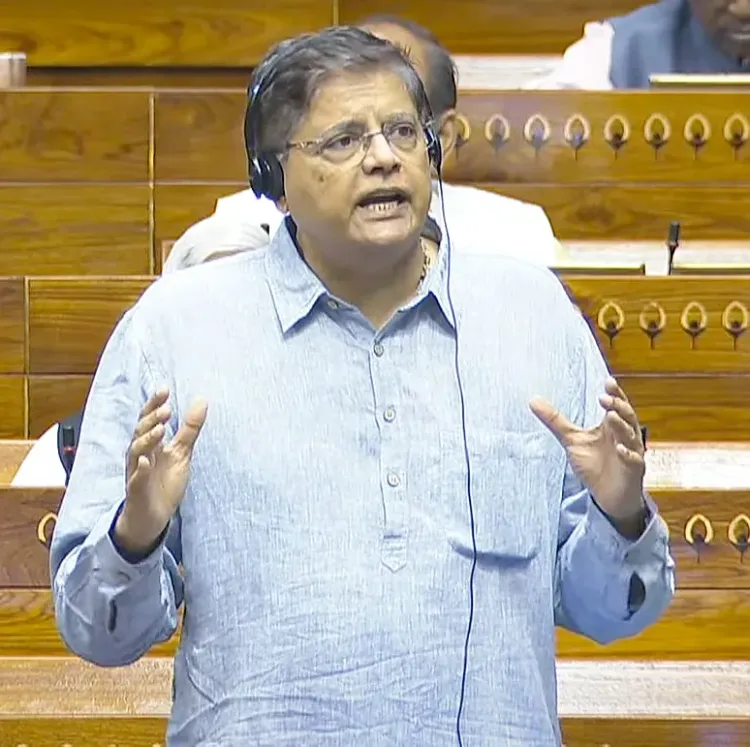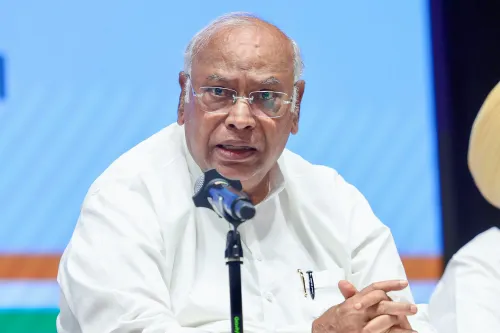Will the New Income Tax Act Accelerate Growth and Reduce Litigation?

Synopsis
Key Takeaways
- New Income Tax Act aims to simplify tax structure.
- Incorporates 285 recommendations from the Parliamentary Select Committee.
- Reduces litigation and confusion for taxpayers.
- Modifies tax slabs to benefit the middle class.
- Fiscal changes could boost household consumption and investment.
New Delhi, Aug 11 (NationPress) BJP leader Baijayant Panda, who chairs the Parliamentary Select Committee that examined the Income Tax Bill 2025, stated on Monday, “This new Act will significantly accelerate growth by simplifying tax regulations and enhancing compliance, thereby minimizing disputes and litigation.”
Panda extended his congratulations to Finance Minister Nirmala Sitharaman for the successful passage of the revised Income Tax Bill, 2025 in the Lok Sabha.
He noted, “Under Prime Minister Narendra Modi’s leadership, over 1,500 laws have been repealed and revamped, propelling India to become the fastest expanding and now the 4th-largest economy globally.”
The Income Tax (No 2) Bill, 2025, was approved shortly after Finance Minister Nirmala Sitharaman presented the amended Bill, which included most recommendations from the Parliamentary Select Committee amidst significant opposition.
The updated Bill is designed to enhance fairness and transparency while ensuring the law aligns with current provisions. The Finance Minister indicated that this draft aims to provide legislators with a consolidated, revised version that embodies all proposed changes.
FM Sitharaman noted that various suggestions were necessary to accurately convey legislative intent. “These include drafting corrections, phrase alignment, consequential amendments, and cross-referencing,” she remarked, explaining that the previous Bill was withdrawn to prevent confusion.
The revised Income Tax Bill 2025 integrates 285 recommendations from the Parliamentary Select Committee. This new legislation seeks to streamline tax processes and rectify past deficiencies, potentially transforming the Income Tax framework in the nation.
Last week, the Income Tax Bill 2025, introduced in the Lok Sabha on February 13 to supersede the existing Income Tax Act of 1961, was officially withdrawn by the government.
Panda, who led the Parliamentary Select Committee overseeing the legislation, mentioned that once enacted, the new law will simplify India’s long-standing tax structure, reduce legal ambiguities, and assist individual taxpayers and MSMEs in avoiding unnecessary litigation.
The current Income Tax Act of 1961 has seen over 4,000 amendments and comprises more than 500,000 words, rendering it excessively complex. The new Bill aims to simplify this by nearly 50%, making it significantly easier for average taxpayers to comprehend, according to Panda. The parliamentary panel highlighted numerous drafting errors and proposed amendments to eliminate vagueness.
In the updated Bill, tax slabs and rates have been modified across the board to favor all taxpayers. The new framework significantly lowers taxes for the middle class, resulting in more disposable income, which in turn stimulates household consumption, savings, and investment, the government stated.









